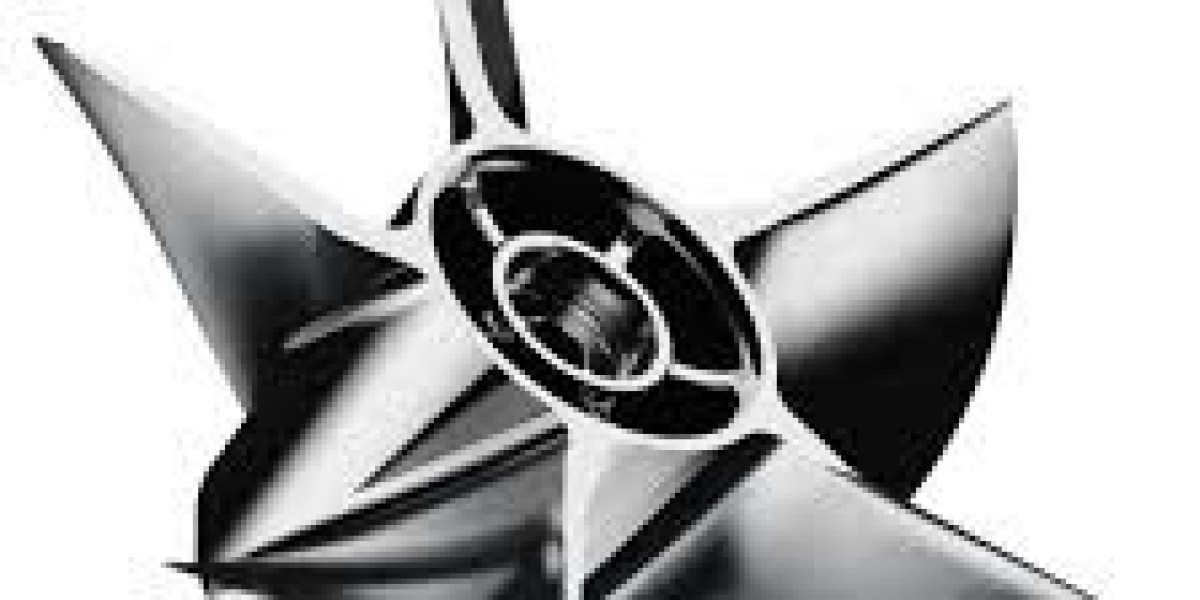Upgrading to a new boat propeller can significantly enhance your vessel’s speed, handling, and fuel efficiency. Whether you're an experienced boater or a beginner, understanding what to look for in a new boat propeller is crucial. This guide will help you explore the benefits, types, and factors to consider when purchasing a new propeller.
Why Choose a New Boat Propeller?
Replacing your old or damaged propeller with a new one isn’t just about maintenance—it's about maximizing your boat’s potential. A new boat propeller can provide:
● Improved fuel efficiency
● Smoother handling and maneuverability
● Better acceleration and top-end speed
● Reduced engine strain
Upgrading can turn a frustrating boating experience into a smooth, powerful ride.
Signs You Need a New Propeller
Your current propeller might be holding back your boat’s performance. Here are some signs that it’s time for a new one:
● Visible damage such as chips, cracks, or bent blades
● Vibration or unusual noise while cruising
● Sluggish acceleration or difficulty getting on plane
● Excessive fuel consumption
If you're experiencing these issues, it's likely your current propeller isn't working efficiently.
Types of New Boat Propellers
There are various types of boat propellers available, and choosing the right one depends on your boat type, engine, and intended use.
1. Aluminum Propellers
Aluminum propellers are popular due to their affordability and decent performance. They're a great choice for recreational boaters who want a cost-effective solution.
2. Stainless Steel Propellers
Stainless steel offers durability and enhanced performance. These are ideal for high-speed or performance-focused boating.
3. Composite Propellers
Made from plastic and resin materials, composite propellers are lightweight, resistant to corrosion, and affordable. However, they may not match the performance of metal props.
4. Dual and Triple Blade Options
More blades can provide smoother operation and better thrust but may slightly reduce top-end speed.
Key Factors to Consider When Buying
When selecting a new boat propeller, several variables can influence your decision.
Pitch
Pitch refers to how far the propeller moves forward in one rotation. A lower pitch offers better acceleration, while a higher pitch provides more speed.
Diameter
The diameter affects how much water the propeller displaces. Larger diameters are better for heavy boats, while smaller diameters suit lighter vessels.
Material
As discussed earlier, the material of your propeller impacts both performance and longevity.
Number of Blades
Three-blade props are standard and offer a good balance. Four or five blades offer better control and smoothness.
You can find a range of high-quality options tailored to your specific boating needs at VIFPROP.
Benefits of Upgrading Your Boat Propeller
Enhanced Speed
New propellers, especially stainless steel or well-designed aluminum, can significantly boost your boat’s speed.
Fuel Savings
A well-matched propeller reduces drag and engine load, resulting in better fuel economy.
Long-Term Cost Savings
While a high-quality propeller may be a bigger initial investment, its efficiency and durability can save you money in the long run.
Better Boating Experience
A new propeller leads to smoother rides, better handling, and less engine strain—making boating more enjoyable overall.
Installation Tips for Your New Propeller
Once you purchase your new propeller, installing it properly is key.
● Remove the old propeller using a wrench and appropriate tools.
● Clean the shaft to remove any debris or corrosion.
● Apply marine grease before fitting the new propeller.
● Secure it properly using a prop nut and cotter pin.
If you’re unsure, professional installation ensures safety and optimal performance.
Maintenance Tips for Longevity
To keep your new boat propeller in top shape:
● Inspect the propeller regularly for damage
● Remove fishing lines or debris wrapped around the shaft
● Avoid running aground or through shallow water
● Store your boat with the propeller raised
Final Thoughts
Investing in a new boat propeller is a smart move for any boat owner looking to boost performance, fuel efficiency, and overall experience on the water. The key is to understand your boat’s specifications and select a propeller that complements them. Whether you're replacing a damaged prop or upgrading for better performance, this guide offers the foundation you need to make an informed decision.
For premium propeller options designed for speed, efficiency, and durability, visit VIFPROP.






